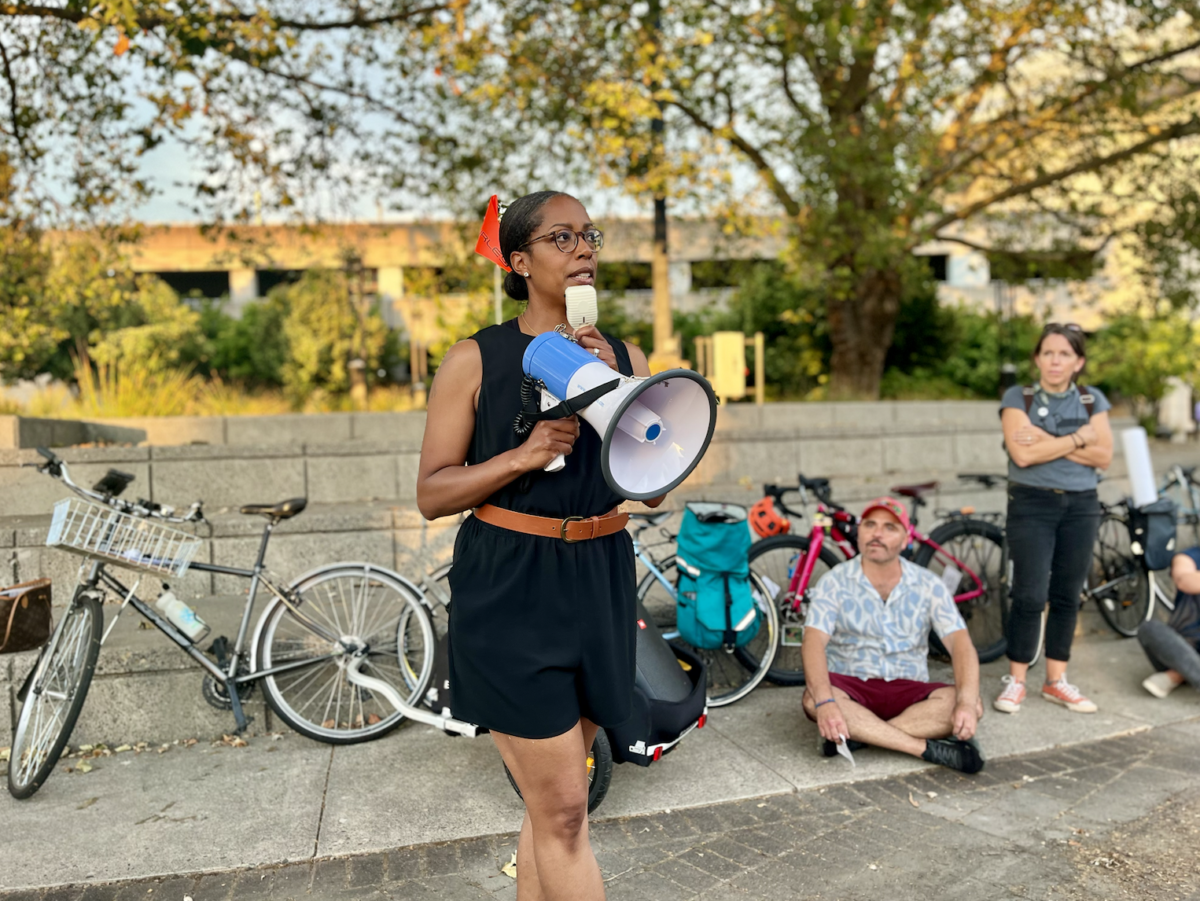
Given all the rumors of Portland’s downfall, it can be hard to remember there are so many people who love this city and actively work to make it a better place for everyone. Oregon Humanities wanted to highlight some of the ways people show their love for Portland, and what better way than a Pedalpalooza ride?
Last night, I joined the Oregon Humanities “Civic Love” ride, intended to show off how Portlanders have demonstrated “love for society, expressed through a commitment to the common good.” Oregon Humanities Program Manager Rozzell Medina led the ride, guiding a couple dozen people to several sites representative of this ethos. Throughout the evening, we heard from people who show their civic love for Portland in different ways, together forming an ecosystem of people who care about this city and the people who live here and use diverse tactics to make change.
The ride began at Lovejoy Fountain Park downtown. From there, we headed a few blocks west to a plaza at Portland State University near the headquarters of North Star Civic Foundation, an entrepreneurial foundation that works to encourage bold civic leadership. North Star’s Executive Director Caitlin Baggott Davis shared her thoughts on how to best demonstrate civic love and overcome what she called “civic distress” – a problem currently ailing many Portlanders.
The antidote, Baggott Davis said, is civic friendship, which is cultivated while working with other people to advocate for societal change.
“Civic friendship is the jam. It’s how you bring together people across different experiences to share knowledge and a vision of what the city could look like,” she said.
Baggott Davis published an op-ed in the Portland Tribune earlier this year expanding on her view, essentially calling on Portlanders to be the change they want to see in the city. This was a key theme of the ride: instead of falling into despair, why not help?
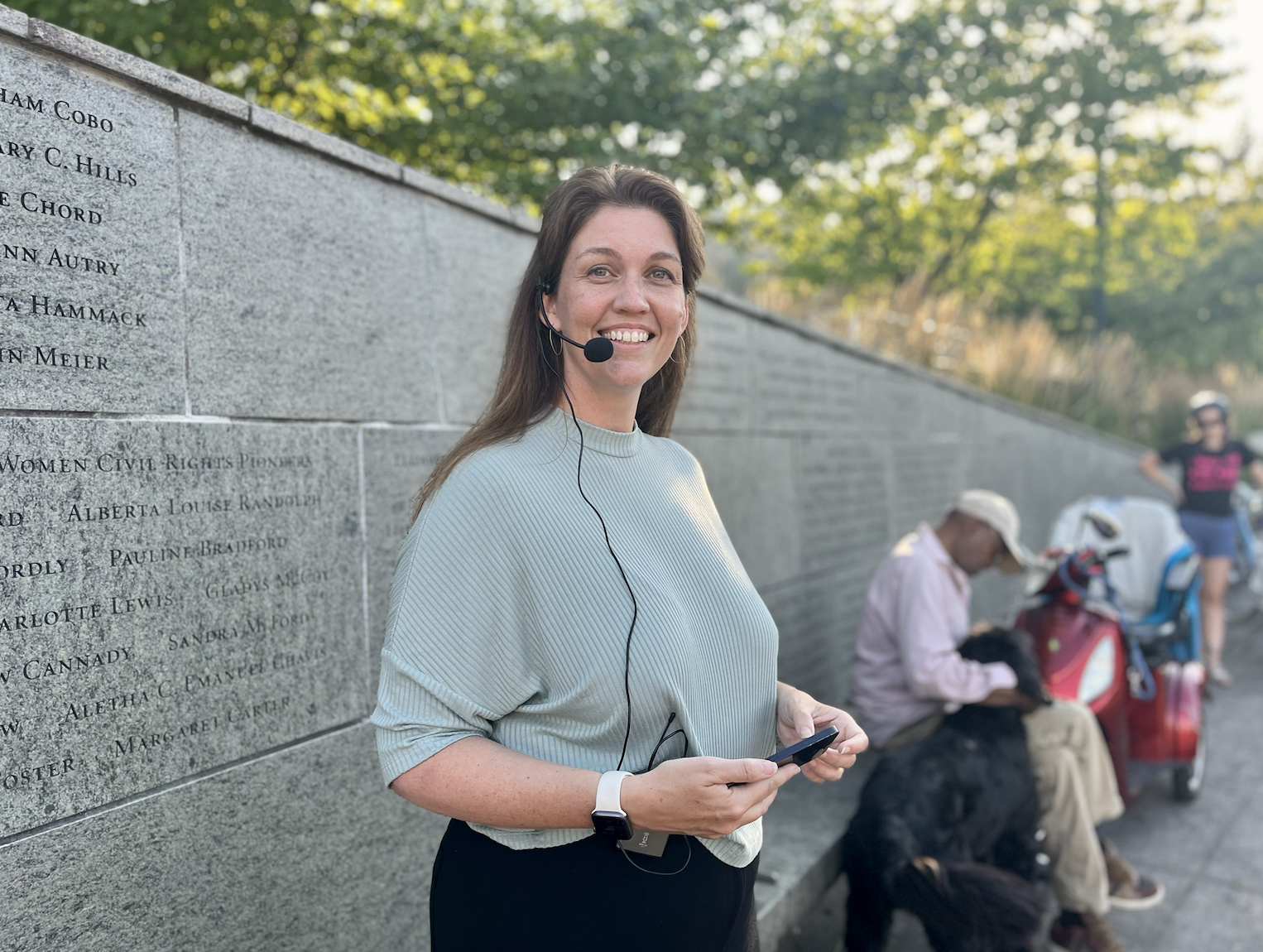
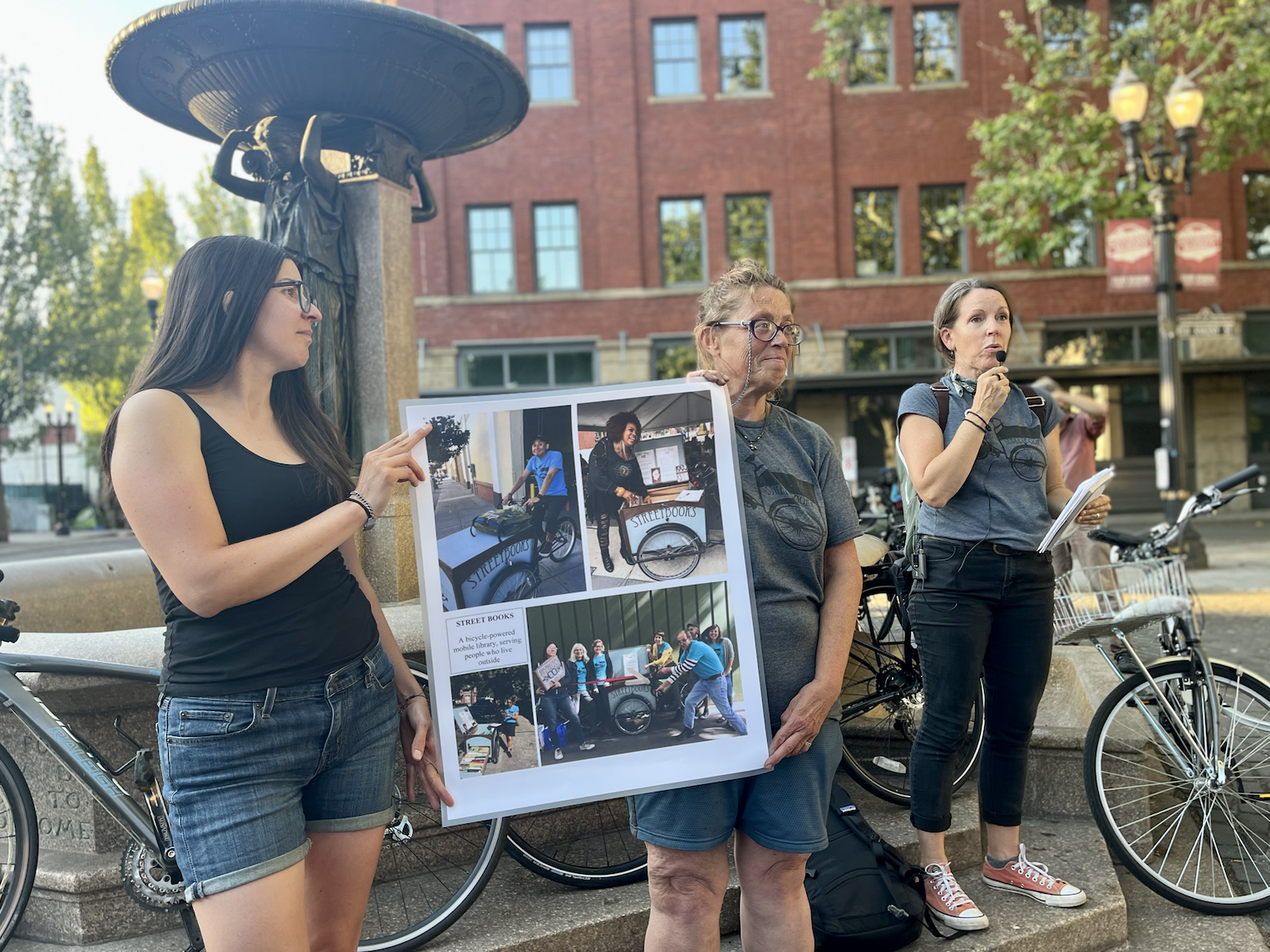
Next, we rolled north to Skidmore Fountain near the Saturday Market to learn about Street Books, a local bike-powered mobile library bringing books to people living outside. This site is where founder Laura Moulton met one of her most valued Street Books collaborators, Ben Hodgson, when he visited the library cart while he was homeless. (Since then, Moulton and Hodgson have cowritten and published a book about the mobile library.)
Moulton said she has found a lot of value in being able to go out into Portland’s streets and use the power of books and bikes to reach people who are rarely included in conversations about how our city works. Now that Street Books has been a beloved city institution for some time, Moulton said she is able to use the platform to advocate for larger changes.
“We’re in a position to be able to remind people that everyone needs a seat at the table. Everyone deserves to participate in deciding what makes a place great,” Moulton said.
For the last part of the ride, the group headed across the Steel Bridge to the Rose Quarter. On the way, we were treated to the beautiful views of the Willamette River at dusk on a summer evening. This kind of natural beauty might be commonplace to Portlanders, but it never gets boring, and it’s something that most everyone who lives here can agree on.
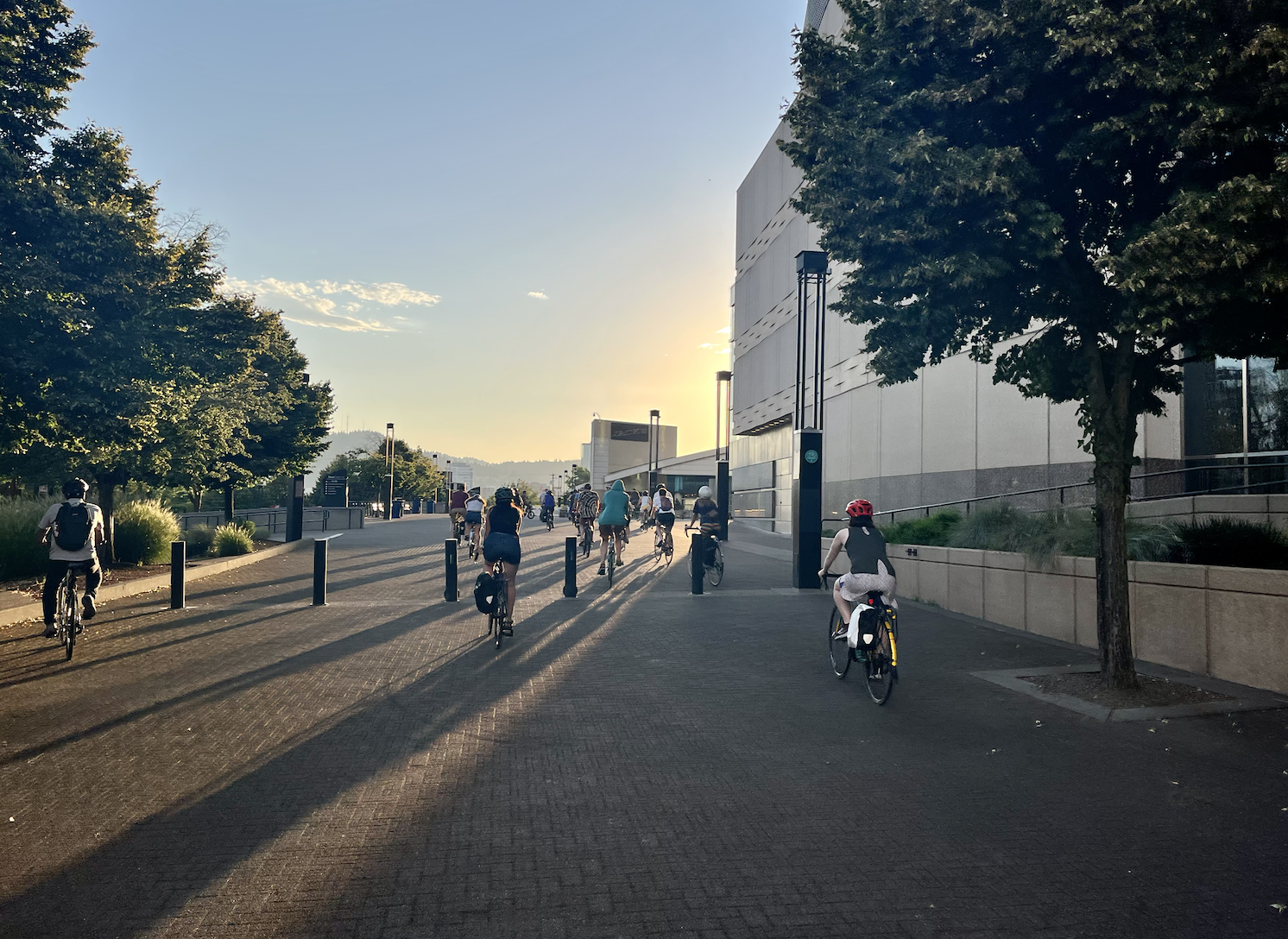
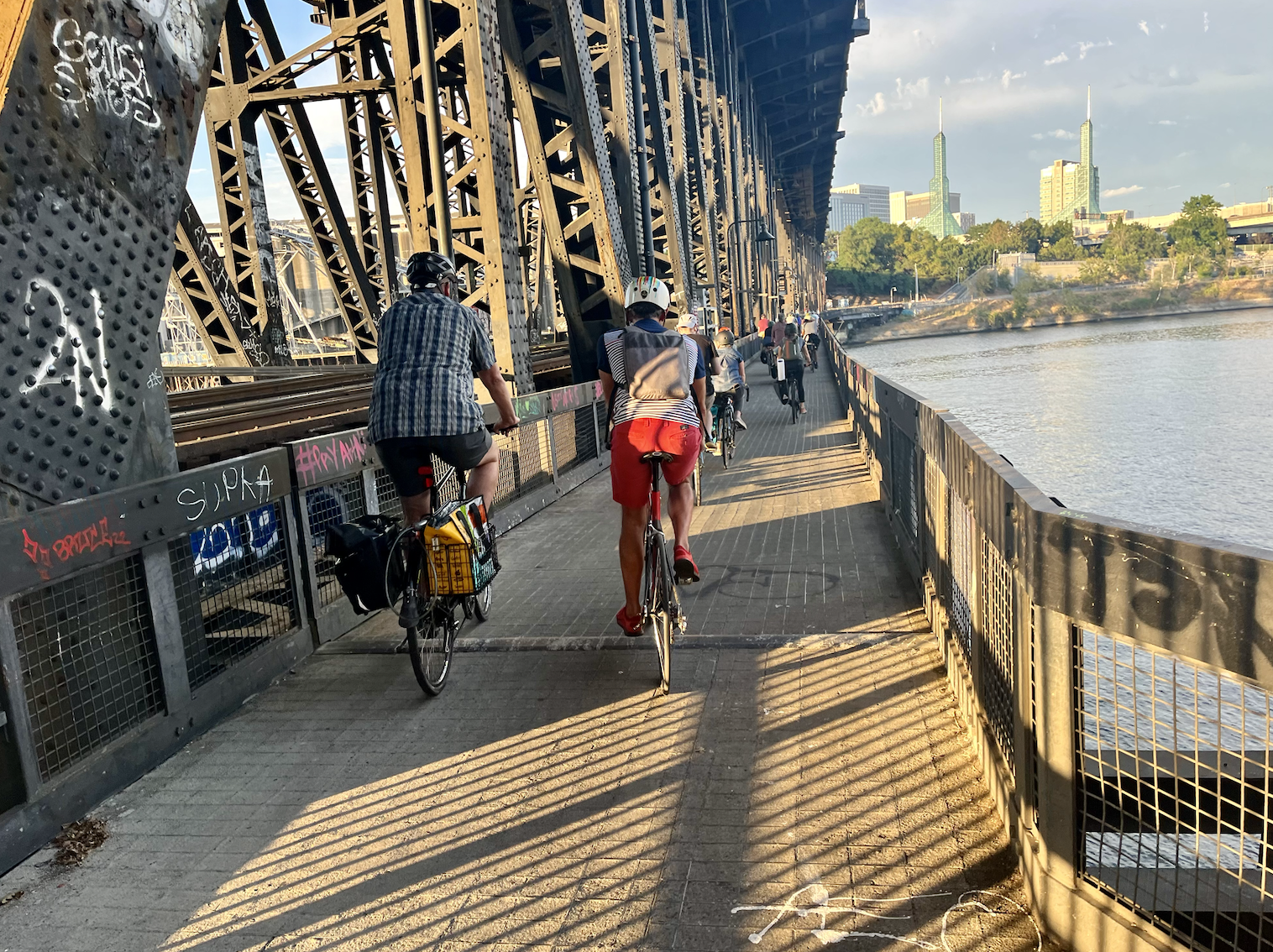

At the Rose Quarter, Albina Vision Trust Board Chair Rukaiyah Adams joined us to talk about how civic love can help us overcome some of the biggest blights on this city’s history.
The Albina Vision Trust advocates for renewing Portland’s historically Black Albina district that was largely decimated with the construction of I-5 and the Rose Quarter. Irreversible damage was done when the city razed houses occupied by Black Portlanders to clear space for the Veterans Memorial Coliseum and the freeway, and the testament to that destruction is still very much intact.
“We essentially destroyed the homes of Black veterans to build a monument to white veterans,” Adams said. “For Portland, this is the equivalent of a Robert E. Lee statue.”
However, Adams said she remains optimistic. She said we can’t overlook the flaws of our city and we have to be honest about the past, but we also need to find some way to move forward.
“The way we express love is by telling the truth,” Adams said. “We have to find a way to work together to love each other and to express love in urban design.”
If the idea of embracing civic love sounds overwrought to you, just remember you may be doing it already. Whether we say it outright or not, we show optimism and hope in what this city could look like every time we get on a bike. Though this ride expressed it more directly, I believe every Pedalpalooza ride is a civic love ride.




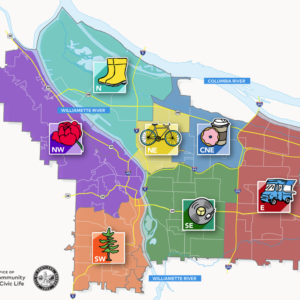


Thanks for reading.
BikePortland has served this community with independent community journalism since 2005. We rely on subscriptions from readers like you to survive. Your financial support is vital in keeping this valuable resource alive and well.
Please subscribe today to strengthen and expand our work.